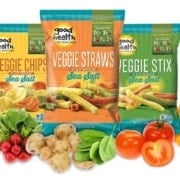Nielsen: Private Label Sales Grew 3X Faster Than National Brands
Reading Time: 3 minutes
In a recent report released by Nielsen and cited by Food Navigator, private label sales surpassed the sales of national brands. Private labels are manufactured by one company under another company’s brand or private label. Also called OEM products, they can add margin to stores as well as provide more credibility to shoppers.
The Benefits of Private Labels
Whether it is a bottle of orange juice or a bottle of ketchup, today’s shoppers are comfortable with private labels, which they also called “generic” brands. There are a lot of benefits to using private labels. Private skip the big brand name, so there is no added cost which allows vendors to add cost or value to their product in other areas to make it more reliable. It is also a solid strategy for retailers as it can reduce competition in different categories.
The Growth of Private Label Sales
The Nielsen report has shows that private labels have experienced a complete reversal regarding its growth, sales, and popularity. In fact, future projections indicate that there will be continued growth for such products and that the market share could hit 25.7% by 2027. This translates to an 8% growth rate over the next ten years.
The popularity of private labels has resulted in retailers like Lidl, Aldi, and Trader Joe’s to earn more revenue and build customer loyalty. In fact, such retail companies have emphasized these products in their online and brick and mortar stores with much success.
National Brands Vs. Private Labels
Big food manufacturers are watching this trend with alarm. And even the brands that remain strong and unsurpassed by private label products are still watching with keen eyes and ready to react. Most national brands are working on convincing shoppers that national brands have been tried and tested and worth the extra cost. But in reality, market experts noted that longtime legacy brands could get an extra boost especially if they continue to innovate and do not rest on their laurels.
While the private label brands are not yet posing too much threat to national brands, there is still a possibility that it can happen. If national brands cannot keep up with the private labels, the market scene in the United States will look more like in Europe where private label commands more loyalty from consumers. In fact, in the UK, private labels hold 45% of the market share within the grocery sector. The reason why private labels are popular in Europe is that they provide more value for the money and that they offer more choices to shoppers.
Private labels will be huge in the following years. If private labels keep up with the changes as well as offer more value and choices to shoppers, they can ride the current trend for a long time to come.
Inspired by www.fooddive.com





